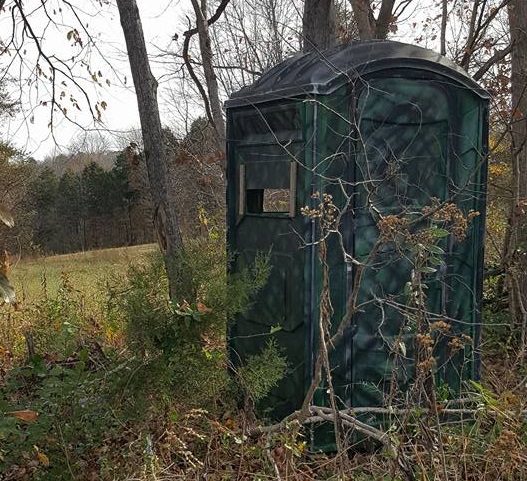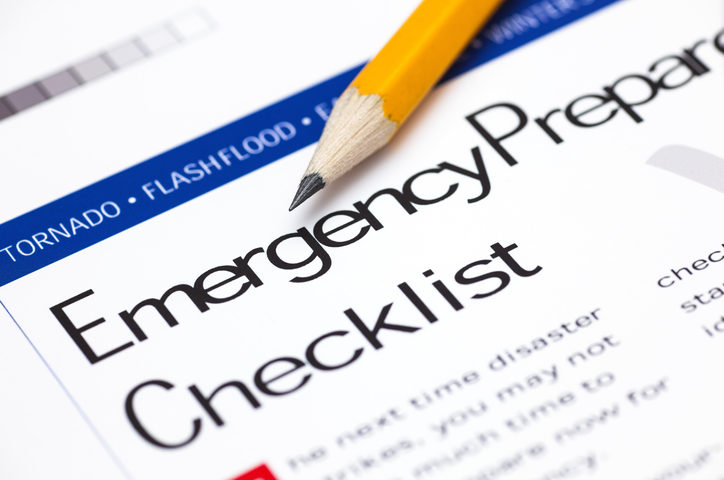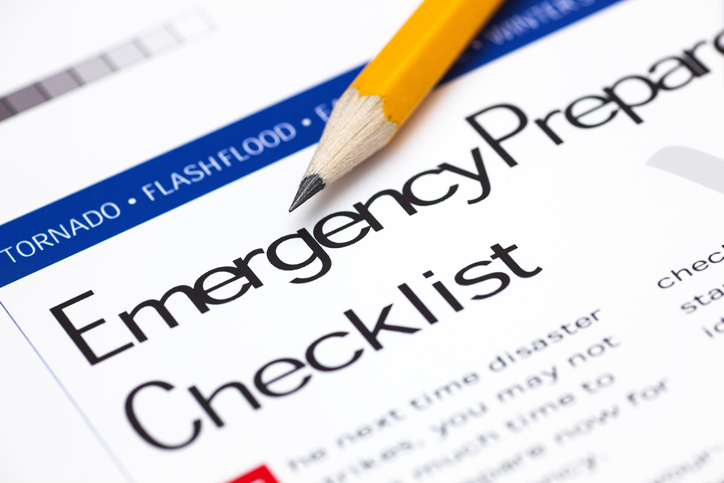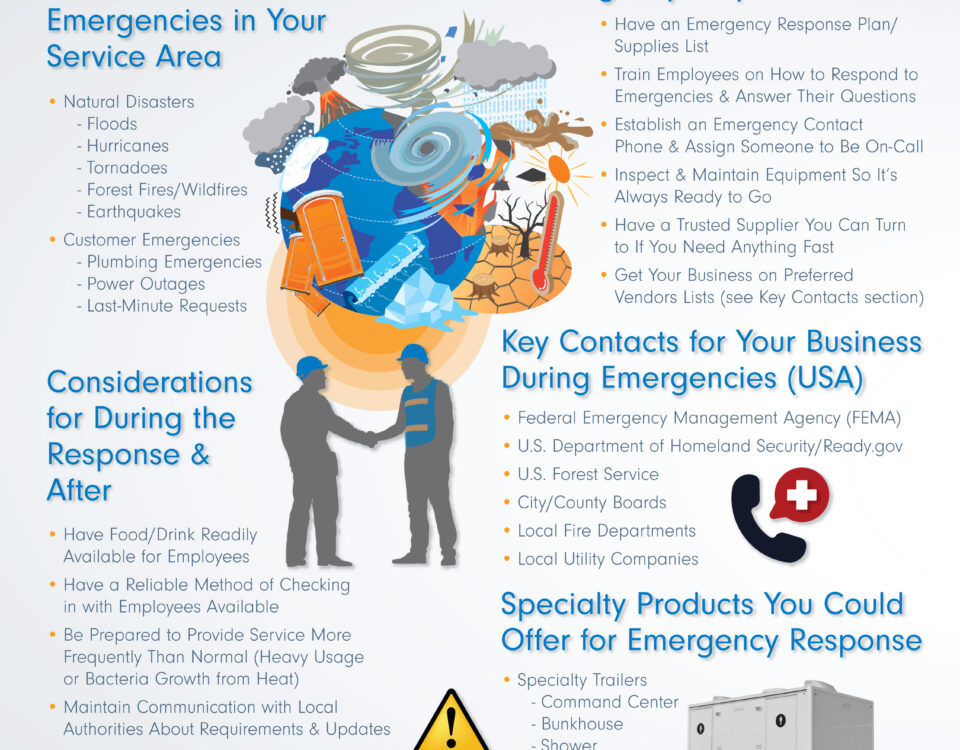
What to Do with Retired Units
October 14, 2019
INFOGRAPHIC: Elements of a Winning Marketing Strategy
October 21, 2019Your portable restroom clients depend on you regardless of what’s going on in the world. So, when an emergency disrupts business as usual, your demeanor and response matter. During a disaster, you may receive a barrage of phone calls from customers while others go silent and leave you with unpaid invoices. Managing customers during emergencies and disasters requires you to take charge yet show compassion.
Keep Communications Simple
Emergencies cause a high level of stress for those involved. Understanding how the psychological element impacts both customers and staff can help you provide excellent customer service. Before a crisis occurs, talk to your team about handling distressed customers and give a few guidelines as well. For example,
- Avoid sharing opinions or hearsay about the situation. Gently refocus conversations on how your company can help.
- Express an understanding of the situation while positioning yourself as a confident leader. Lead your clients to solutions.
- Step back if customer demands seem unclear or over-the-top. Suggest your staff turn the problem over to you before further engagement.
Throughout the crisis, it’s essential to keep the lines of communication between team members open. Stay aware of staff issues that may affect their performance or ability to handle customer service calls. Having a strategy for responding during emergencies can help you and your team demonstrate the confidence that your clients need.
Provide Emergency Contracts and Payment Options
Disruption due to a disaster can lead to disarray with local organizations. Typical decision-makers may be unavailable to sign-off on agreements or approve payments. While this problem is often temporary, it’s up to you to weigh in on the facts and make an informed decision about how the process works.
- Clarify name, title, phone, and email information when lines of authority are unclear.
- Document all communication with your customers, including dates and times.
- Follow normal processes but allow for flexibility.
- Use a simplified contract that’s been approved by your lawyer.
- Develop a policy on how your company handles deposit waivers or payment delays.
Get the JohnTalk “ALL-ACCESS PASS” & become a member for FREE!
Benefits Include: Subscription to JohnTalk Digital & Print Newsletters • JohnTalk Vault In-Depth Content • Full Access to the JohnTalk Classifieds & Ask a PRO Forum
Consider Payment Leniency on a Case-by-Case Basis
There’s a good chance that you’re already involved in your community. That’s why, when it comes to business, it can be tough to enforce policies when emotions are involved. However, both you and your portable restroom employees need payment during disasters.
During a crisis, organizations may go into debt with several vendors. Some companies may be waiting for communication from decision-makers. Other businesses may want to wait for insurance or disaster aid to come through. Use your best business sense to determine leniency when giving payments.
- Include a note regarding your emergency policy that states your payment is not dependent on your customer receiving funds.
- If you offer an extended payment plan, make the due dates clear and follow up with all the information in writing.
Each interaction during an emergency is fraught with emotions. By setting up your team with the confidence to step into a leadership role, you’ll handle customers while maximizing opportunities. Plus, a calm response demonstrates your ability to serve not only your customers but also your community.
Looking to Take Your Portable Restroom Business to the NEXT LEVEL? Download our FREE Guide: “Your Guide to Operating A Portable Restroom Business.”
Thinking About GETTING INTO the Portable Restroom Industry? Download our FREE Guide: “Your Guide to Starting A Portable Restroom Business.”






